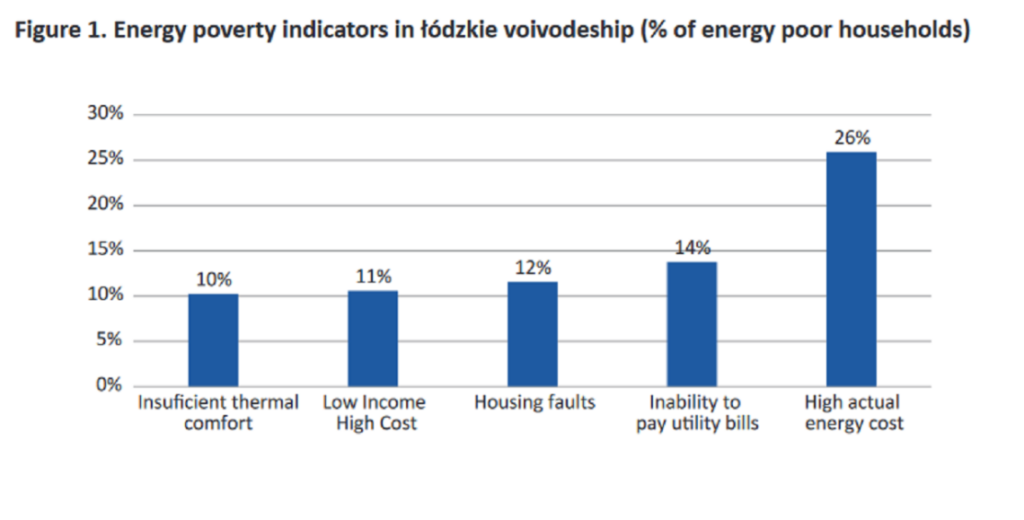The results of the report are based on an analysis of existing data, quantitive analysis of a survey, qualitative analysis of interviews, consultation of the report results with stakeholders. The research showed that in łódźkie voivodeship, from nearly 100 thousand to even 250 thousand households (from 10 to 26%) were energy-poor, depending on the energy poverty indicator.

Source: “Energy poverty in łódzkie voivodeship” p.10 own calculation based on a survey on a representative sample of households in łódzkie voivodship (n=800)
The causes of energy poverty
Households with the following characteristics in łódzkie voivodeship were at a higher risk of energy poverty:
- use individual heating systems;
- live in buildings constructed before 1961 (mostly detached houses);
- their main source of income are pensions and social transfers;
- live in rural areas;
- are one-person households.
The causes of energy poverty among the surveyed households were diverse. Buildings in-habited by energy poor households were often in poor condition and were heated with solid fuel stoves. Heating was the most burdensome problem for the households, often leading to fire hazard. In the apartments of the energy-poor, there were problems with faulty electrical installation, water heating prices, drying of clothes (mold) and maintaining the right temperature in summer (overheating of houses).
Recommendations
It is recommended to:
- assign responsibility in the field of decreasing the scale of energy poverty to the voivod-ship authorities, and then supporting local activities;
- equip the anti-smog law with tools to support energy-poor and implement an information campaign on the effects of the law;
- inform on the possibility of co-financing the heating sources for energy-poor households and to encourage local institutions in supporting beneficiaries of the programs;
- introduce a targeted allowance for energy-poor, especially in communities with high air pollution and large population;
- strengthen the competences, capabilities and involvement of non-governmental organisations in the area of energy poverty;
- increase pressure on installing new heating sources and connecting multi-family buildings to municipal heating networks as part of revitalization programs.
The full report is available here (Polish only)
***
The research was carried out by a consortium of Danae (LLC) and the Institute for Structural Research. It was commissioned by the Regional Centre for Social Policy in Łódź.

